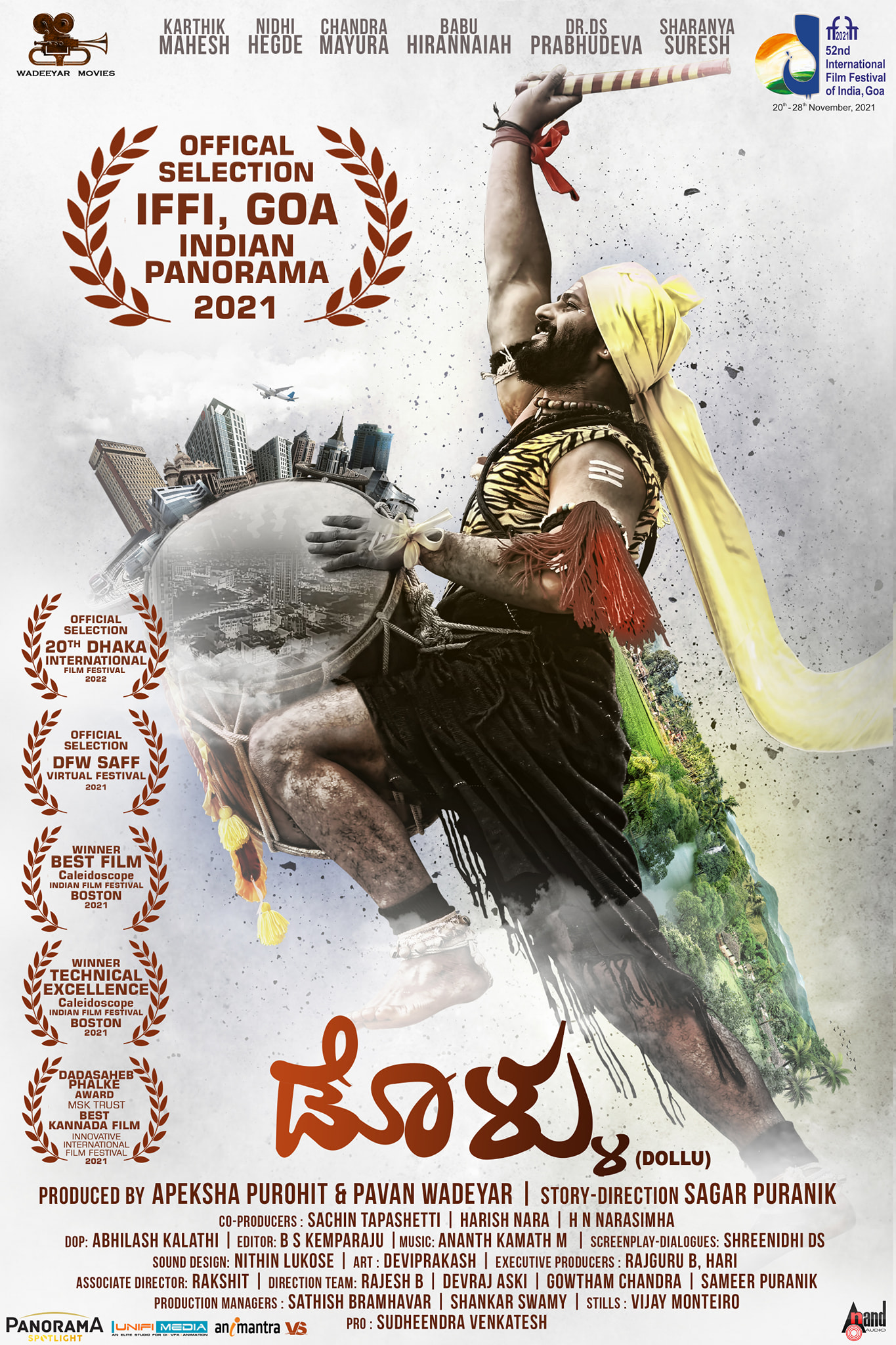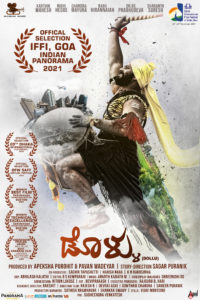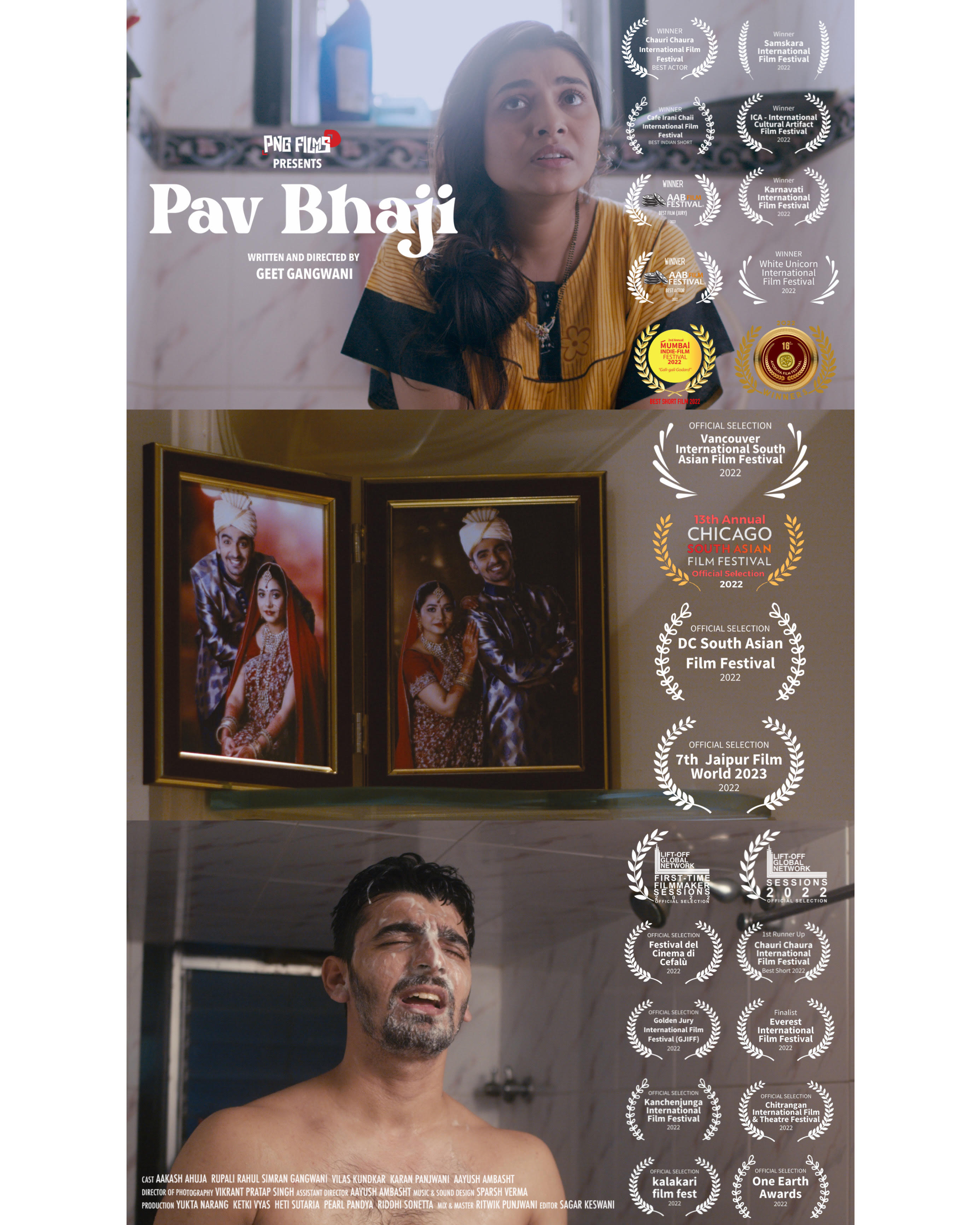
VSAFF 2021 Indie Film Review “Dollu”
NO TRAILER CURRENTLY AVAILABLE
First, the Recap:
Vanquishing the odds stacked against you. Never an uncommon concept, the circumstances that enter our path can be overwhelming and outwardly offering no chances for things to be rectified, especially when even those closest to us are no longer supporting what once was a shared dream steeped in vibrantly necessary tradition. So, when it would appear those established ways are in danger of fading into history, what will be the choices we make that either see that be the end result–or usher in a newfound means to redefine it all? Bhadra (Karthik Mahesh) has a proud legacy to uphold–performing the Dollu Kunitha. But, when the passion he has becomes supplanted with monetary gain rather than the foundational resonance of cultural heritage and custom, will he be able to rise above it or get swallowed by a changing reality that threatens to upend ancient practices and needed celebration?
Next, my Mind:
Vibrant, energetic, colorful, dramatic, passionate, and an outright triumph of indie filmmaking’s ability to transport us into a fulfilling, captivating, heartening perspective of longstanding tradition and the absolute necessity to keep ancient art forms alive and abiding for generations to come, this dazzling feature film from director Sagar Puranik, writer Shreenidhi Ds, plus producers Apeksha Purohit and Pawan Wadeyar is executed in a style that one hundred percent captures you from the very first enacting we witness of the treasured Dollu Kunitha drum and dance performance, through the narrative’s pathways that endear us to the lead protagonist and the personal challenges and means by which he attempts to salvage heritage and an ongoing legacy, and onward to the final moments that establish a newfound transformation in the art form and its continuance into the future. This was a fabulous effort to screen as part of the 2021 Virtual South Asian Film Festival presented by Toyota, supported by AARP, produced by Jingo Ventures, and in association with DFW SAFF & NYC SAFF.
What I love is that none of this journey we take in seemed forced or just a ploy for gaining “ooo’s and ahh’s” and ultimately feel-good vibes (although, honestly, these elements DO abound in the film!) but rather a wholly genuine cry from the heart to see the beautifully intangible wealth of the arts be preserved and cherished rather than allow them to fade into oblivion, especially those with the level of significance represented here. Telling the story of a young man whose own personal legacy is greatly at stake given his familial pedigree as it is associated with their village’s Dollu Kunitha custom and a yearly celebration it’s performed during, the narrative pushes forth with well-written, perfectly paced intentionality as it negotiates the thematic seas of devotion, discipline, honor, envy, discontentment, greed, patriarchal mindsets, guilt, abandonment, loss of direction, rediscovery of purpose, and the ability to rise above the odds and establish a fresh, culturally challenging, but utterly inspiring road for a beloved art form to carry on.
Additionally, the foundational driving points behind it including the “grass is always greener…oh, maybe not” disposition and losing one’s commitment and yearning for a passion to the draw of or sake of financial success are featured prominently in a multitude of the characters involved, some of it leading to potentially disastrous results, a falling away from what no longer seems as important, and some to a reassessment of priority and the meaning of wholehearted honor to the extent of going against what’s accepted in order to further a refreshed cause by the film’s stirring finale. Again, it’s stories like this one that resonate powerfully, and SHOULD do so, in a world so fraught with societal strife, anger, and unnecessary hate, showing the victory of standing for your beliefs, not “selling out”, knowing JOY, and experiencing the freedom that comes from this. Visually, the film excels with its Dollu Kunitha performances that are simply electrifying in their raw emotional potency, kinetic energy, precision of movement, and undeniable “stand up and SHOUT” reactions it all elicits.
Mahesh delivers a wonderfully grounded performance through his role as Bhadra, a man steeped in, and in so many ways under the looming shadow of, the heritage his father established in regard to the Dollu Kunitha and its impactful essence it has brought to their small village. Bhadra’s personal investment in learning it and taking the torch has become his passion, and working with his team of fellow drummers has always seemed a “forever” aspect of life. But, when circumstances get altered and disharmony threatens to tear apart all they’ve built, it becomes the decision for Bhadra to choose the allure of city life and, granted, needed money over his still overwhelming sense of pride and dedication to the art form he esteems. What Bhadra ends up having to experience before the reawakening he needs sinks in is a mix of dogged determination, perseverance, and heartbreak, with Mahesh deftly maneuvering the character through it with wonderfully affecting believability and a fierceness of purpose that is so relatable and exceptional.
Primary supporting turns arrive in full and equally impactful force through Nidhi Hegde as Bhadra’s girlfriend Priya, a woman so longing to see him be who he is meant to be for their village and who stands with him even when Bhadra’s attitudes take a turn she isn’t thrilled with, all conveyed through Hegde’s understated yet quietly formidable presence as the character. Rakshith, Varun Srinivas, Vishwa, Gangadhar, Dr Prabhudeva, Gowtham, Ravi Kiran, and Chandramanu make up the core group of Bhadra’s friends and fellow Dollu Kunitha performers with whom he has formed a deep bond with. However, as each begins to encounter the financial and personal troubles they do, it becomes clear most wish to leave behind the commitment to tradition for the sake of city-based career successes, which causes a major rift between them and Bhadra. How they each end up confronting him and the choices they are making is full of dramatic tension that propels the story forward. Hence, this is to say each one of these actors very much embodies this dilemma of heart and life journey with realistic boldness and effective intensity.
Additional supporting appearances that also end up feeding into pivotal instances in the narrative’s intent come from Chandra Mayura as Kaala, Bhadra’s father whose understandably rigid outlook about his son leaving behind both a deeply customary and family-rich commitment leads to an interesting conclusion between them, Sharanya Suresh as Bhadra’s sister Lachchi who likewise has her own frustrations towards her brother than culminates into a unique new direction for their relationship, plus Chandrakala and Nayana as a village mother and daughter, the former who’s always wished for her child to learn Dollu, the latter highly longing to do so, but both have been constrained by their society’s deep-seated conventions. So, in total, “Dollu” is nothing short of inspirational, a film well worth taking in for the sheer quality of a story that should allow us all to relish the accessible challenges it might cause us to see within ourselves, revealing therefore how we might reassess what it is to have an enduring desire to see things remain that should, and through it all revel in the heart-thumping, soul-stirring sounds of the bangles and drums as they echo in our minds.
As always, this is all for your consideration and comment. Until next time, thank you for reading!



